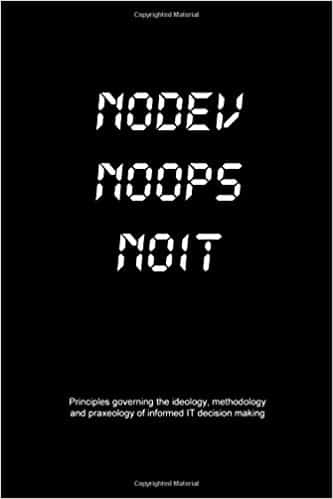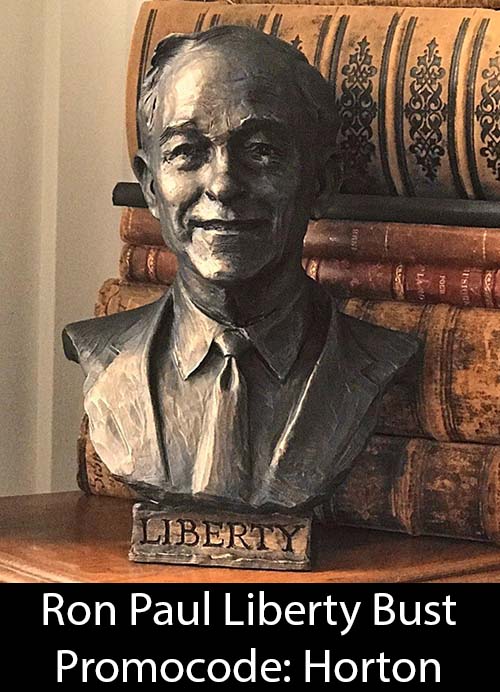Blogger Marcy Wheeler discusses Attorney General Eric Holder’s claim that the president can kill Americans on US soil with a drone if he so chooses – and Congress can’t stop him; Rand Paul’s filibuster of John Brennan’s CIA director nomination; the Bush administration’s deliberation on sending the military to arrest/kill the “Lackawanna 6” in 2002; and how drone assassinations in Yemen are turning entire villages against the US.
Transcript:
SCOTT HORTON: All right, y’all. Welcome back to the show. I’m Scott Horton streaming live at noagendastream.com Monday through Friday, less Thursday, from noon to 2 Eastern anyway, 11-1 Texas time, and my full interview archives are available at scotthorton.org, more than 2700 interviews going back to 2003. You can find me on Facebook, Twitter and YouTube at /scotthortonshow. All right. So. Marcy Wheeler’s on the phone. You know her as emptywheel in the blogosphere. Emptywheel.net is her great blog, and she’s been writing about, well, a hell of a lot of different important things, but for our interest today, the president’s declared power to kill American citizens even with drones in the United States of America. Welcome back to the show, Marcy, how are you doing?
MARCY WHEELER: I’m doing all right. How are you?
SCOTT HORTON: I’m doing real good. Appreciate you joining us today. I’m watching Rand Paul on C-SPAN my favorite way, on mute.
MARCY WHEELER: (laughs) I’ve got him on mute too.
SCOTT HORTON: All right, well, so is he saying anything useful up there, or would I be shading my eyes and shaking my head in shame if I could hear him out loud?
MARCY WHEELER: At the beginning of his – I mean, he’s been filibustering for two hours now. About the first hour he was talking a lot about drones. He’s now talking about limited government more generally, but he’s saying, and particularly on the drone stuff, he’s saying a lot of stuff that needs to be said.
SCOTT HORTON: Yeah, okay, well that’s good. So this is his filibuster. He’s trying to hold up the nomination of John Brennan for CIA director?
MARCY WHEELER: Or at least draw some attention to the problems the government is, the claims that the government is making about being able to kill Americans. And frankly, you know, to his credit, he’s not just complaining about that. He’s complaining about things like signature strikes. So he’s complaining about a bunch of problems, problematic aspects of the drone program.
SCOTT HORTON: Oh, that’s good. Well, I hope to read the transcript later. I don’t mind reading him as much as listening. Anyway –
MARCY WHEELER: (laughs) Well the first hour is definitely worth a listen.
SCOTT HORTON: Yeah, okay. So, well, that’s good to know. And now, so John Brennan, of course, he of the signature strike – and now it’s funny because “signature strike” might sound to someone like, well, they have to take responsibility and put their signature on the strike (laughs) or something like that, but really it means that if they’re doing jumping jacks or playing on monkey bars, that those are things that are the signature activities of terrorists in the world and so we get to kill them. Anywhere they are.
MARCY WHEELER: Right. I mean signature is – I mean, that’s true of all of these. And remember that they tried to invent that term “TADS” once? Like the “terrorist attack denial system” or something, I don’t remember what it stood for. They gave up after a day because it was so obviously a euphemism, but, you know, so is “signature strike.” You know you’re in trouble when you have to invent these words to cover up what you’re actually doing, and that’s the case with the drone program.
SCOTT HORTON: Yeah. Or, you know, reinventing words that everybody already knows what they mean. I saw this clip this morning where Ted Cruz of all people is taking on Eric Holder over this question and they’re arguing about, it comes down to, yes, the president can kill you with a drone in America, but does the threat have to be imminent or immediate? (laughs) And so, I guess if you’re having coffee on the sidewalk, but later Eric Holder thinks you might hijack a plane, that’s not quite Constitutional, but if you were walking down the sidewalk on your way to your car to go to the airport to hijack a plane, well then he might be able to go ahead and drone you then, I think was about where they left it.
MARCY WHEELER: Yeah, and we didn’t necessarily get – you know, I think the most telling exchange from the hearing today is when Chuck Grassley, and I think your show had already started at this point, Chuck Grassley got up and said, quote, “Do you believe Congress has the Constitutional authority to pass a law prohibiting the president’s authority to use drone aircraft to use lethal force against Americans on U.S. soil, and if not, why not?” And Holder’s response was, “I’m not sure that such a bill would be Constitutional. It might run contrary to the Article II powers that the president has.” So in other words, Chuck Grassley, and he was actually following up on Cruz’s comments, he said, you know, “Can we pass a law that says you can’t use drone strikes against Americans unless they’re an imminent threat?” And Holder said no, that’s Article II.
SCOTT HORTON: Well. And Article II of course meaning exactly what – does that mean that the commander-in-chief power overrides all, or does that mean that just the words “Article II” say that there is somewhere unlimited authority in the hands of the president of the United States?
MARCY WHEELER: Well, I mean, what the government, what the executive branch maintains – so this is written up in OLC opinions actually written by John Yoo but they’re still out there – they maintain that the president – and sort of within the scope of the AUMF, they say well Congress can’t limit that at all. They can’t tell him who’s included, who isn’t Al Qaeda. They can’t tell him how he’s going after Al Qaeda. They can’t limit that.
SCOTT HORTON: And so it’s just as simple as that, is that the Author– so you’re saying the Authorization to Use Military Force against the people what did the attack past back in 2001, the loophole is that they can define the enemy however they want. And that’s it. That’s all they need to say that they can use any of this unlimited right because that Authorization to Use Military Force would have covered the Marine Corps, the CIA or anybody else at the employ of the executive branch to do their bidding, right? And you’re saying this is the loophole that they’re driving a star destroyer through.
MARCY WHEELER: Well it’s a loophole in the AUMF, but in fact the president signed the memorandum of notification for counterterrorism the day before the AUMF was signed. He signed it on September 17, 2001. And that’s actually what first authorized torture, what authorizes targeted killings, what authorizes partnering with dictators in Syria and Libya, and that’s what is the primary authorization for a lot of this. And so when you see the president saying, “Well, the Constitution and the AUMF authorize this,” you know, which was signed first? Actually the Memorandum of Notification authorizing covert operation was signed before the AUMF. And so you got to imagine, and the general counsel of the CIA has as much as said this on the record, that for them it’s just the presidential authorization, that the AUMF for them is just gravy.
SCOTT HORTON: Right. Yeah, that’s like their extra backup argument, I see. And, well, in a way, they’re right, aren’t they? I mean, Washington did it. I mean he didn’t kill everyone involved in the Whiskey Rebellion, but he was about to kill them all if they hadn’t surrendered. And nobody authorized that.
MARCY WHEELER: Right. But I think – you know, and I think you can go back and you can say, well, you know, and you can also look at the times that the president has mobilized the military, you know, to integrate schools and stuff like that. So there are certainly those historical precedents, and I think what’s different in this case and where the administration is clearly overreaching even those prior precedents that we know of, is precisely that. That he’s operating in secret, that he’s not making clear who we’re at war against, that he’s not making clear the extent of which he would or could use this authority, and so that – and that’s I think one of the things that Paul has said quite well is that had we used the standard that’s being used in the war against terrorism in which people like Awlaki and Samir Khan were writing terrible things about the United States, but Samir Khan in particular was primarily writing against the United States, and there are cases of people in the United States who have been prosecuted for basically translating jihadist literature, and he said, and he’s right about this, “If we had used this standard during the Vietnam war, they could have used a Hellfire missile to take out Jane Fonda.”
SCOTT HORTON: Which, you know, probably a lot of Americans would have supported. It would have done a lot to help the antiwar movement in the last decade if she wasn’t around, if you ask me, but. Naww.
MARCY WHEELER: (laughs) Well, and the other thing he said, is he said, “Well, you know, and people – he’s like, “People once were really horrified by what happened at Kent State.”
SCOTT HORTON: Right.
MARCY WHEELER: “But no more.”
SCOTT HORTON: Or at Waco. Well, let’s not pretend that Janet Reno did the Waco massacre. That was Bill Clinton. Because Janet Reno doesn’t have any authority over the Army Delta Force, the Combat Applications Group Team B, that’s Bill Clinton’s private army. And they can’t machine gun and firebomb Americans to death without his say-so.
MARCY WHEELER: Right.
SCOTT HORTON: All she did was help. You know, with the FBI hostage rescue team. But it was Bill Clinton and the Army that took the lead on that one for sure.
MARCY WHEELER: Which gets us into the answers – what Paul did get is answers from Eric Holder and John Brennan on when the president could use lethal force in the United States, and it was a very curious response between the two of them.
SCOTT HORTON: Right. Well, I mean, for starters, and I’m sure you got much more than this, but for starters Holder said, “Well, you know, if it was a situation like Pearl Harbor and 9/11.” Well those are very different situations. A bunch of military planes taking off from a military ship out at our conquered territory military base out in the middle of the Pacific Ocean, versus hijacked civilian airliners attacking the East Coast at the Pentagon and the World Trade Center. Those are very different things. If we’re talking about, did they have a right to protect Pearl Harbor with drones from the Japanese? Sure. Is he saying that they could have shot down the U.S. jumbo jets, the hijacked jets, with drones, or with fighter jets had they gotten there in time or whatever? I thought it was already agreed that they had the authority to do that. Or is he saying that he could have used a drone to kill Mohamed Atta in his car on the way to the airport?
MARCY WHEELER: Right, and that’s the thing. That’s what’s built into those answers is – it’s sort of a three-part answer. He says, “Well, we could use military force in the United States in a military imminent threat scenario,” and he names two, one where, you know, we don’t know whether they had any such orders but we know that Dick Cheney, who didn’t have the authority, but we know that Dick Cheney ordered a shootdown of any jet coming towards DC on 9/11 –
SCOTT HORTON: Right. At one point 11 planes.
MARCY WHEELER: – which they didn’t actually use, but he ordered it.
SCOTT HORTON: Yeah, at one point he ordered 11 planes to be shot down, and the Air Force was just like, no.
MARCY WHEELER: (laughs) But, the response was more interesting even than that, because then Holder said, “Well, you know, we tend to think that law enforcement is best” – here, I’ll pull up the exact quote. “As a policy matter, we reject the use of military force where well-established law enforcement authorities in this country provide the best means for incapacitating a terrorist threat.” Well, even the white paper uses – the precedent they use for imminence is actually a law enforcement one. It’s actually a cop chase. And they say because that cop chase has been approved by the Supreme Court, then we can use this notion of imminence and kill people in the United States. The problem, again, is what you just said, does that include shooting down Mohamed Atta on his way to the airport? I think one of the things that Eric Holder is saying there, and you brought up the FBI hostage rescue team, is that, you know, we’re as likely to see it done by the FBI hostage rescue team as anybody else. More so. You know, because they’re here. They’re out there.
SCOTT HORTON: Right.
MARCY WHEELER: Most of them, you know, are former special forces – a bunch of them are former special forces, so they’ve got the same kind of training, but they operate within a domestic context, and nine times out of ten they do shoot somebody and it’s just, it’s just declared imminent threat. It’s just declared, well, you know, it was a hot pursuit, just like the same Supreme Court precedent that they used for imminence, and we’ll never know, you know, how hard they tried to capture, how hard they – you know, as soon as they got a gun, then they will shoot somebody dead, and there you go.
SCOTT HORTON: Yeah. Right. It’s just a natural evolution of the process. And our cops already are the soldiers quartered among us. Look at the LAPD. You know, they don’t have to – they do dress like soldiers but they don’t have to when they premeditatedly arson fire somebody to death, you know? They just announce their plan right on an open channel because they know they have complete impunity to murder whoever they want.
MARCY WHEELER: Right. And, you’re talking about Dorner, who was running away and he was definitely a threat – he’d already killed a bunch of LAPD, or LAPD family members or associates, and so, you know, they didn’t wait for him to come out running with guns. They set the building he was in on fire. And that’s a really good recent example of how broad the imminent threat category is even explicitly here in the United States, and –
SCOTT HORTON: Right, because there’s no indication really, right, that they ever said to him, “All right, that’s it, we’ve got you surrounded. Come out with your hands up.” Right? That never happened. They just said, “We found him. Let’s all shoot at him and/or firebomb him until he’s dead.”
MARCY WHEELER: Right. So. And that’s –
SCOTT HORTON: He didn’t need a memo.
MARCY WHEELER: – the thing. I mean, so in Eric Holder’s response to Rand Paul, he said, “You know, as a policy matter, we basically like to use law enforcement.” He went on to talk about force and stuff, and it is true that, you know, that the government has been able to use force to put terrorists away, and frankly grossly expand the authority of courts to put terrorists away, but implicitly within that is that our law enforcement domestically is a whole lot of lethal force based under those same precedents, and that’s what we would expect, who we would expect them to go after a terrorist with. It wouldn’t be a drone. It would be, you know, the FBI hostage rescue team setting up a big bust, something like an ambush.
SCOTT HORTON: Well, now, when Dick Cheney wanted to use the Army against the Lackawanna Six, was that just to have a show of force, “You know what I want to see on TV is soldiers marching down the street,” that kind of thing? Or what?
MARCY WHEELER: Partly. But he also didn’t believe the evidence against them was strong enough for a court trial. So in fact, and I think that that’s why they took out Awla– I mean, that’s one of several reasons why they took out Awlaki rather than ever indicting him is because I think, you know, while I think there is a lot of evidence against Awlaki, I think a lot of it would be very problematic in an antagonistic court situation. So for example, some of the best evidence against him comes from Umar Farouk Abdulmutallab, the Undiebomber’s confession, but I think that there is good question about how, whether when the Undiebomber implicated Awlaki, whether he was speaking of his own will or whether he was trying to get a better deal from the government, in which case, you know, a good lawyer would question how –
SCOTT HORTON: Right.
MARCY WHEELER: I mean I think it was a willing confession, but a good lawyer would question whether he was just trying to save his own life.
SCOTT HORTON: Right. Well, and when it comes to the Lackawanna Six, it’s a matter of record that they were threatened with being turned over to Donald Rumsfeld and George Tenet to be tortured. That was their plea bargain was, “Don’t you want to go ahead and plead guilty and stay within the civilian system?” And their lawyers told them, “Yeah, you want to go along with this now.” You know, that was their plea –
MARCY WHEELER: Yeah, and so, you know, I think the threat was always there, and you know but I think all of them are now free.
SCOTT HORTON: Oh yeah? I ought to try to see if I could interview them about that or something.
MARCY WHEELER: Yeah. I mean, because those guys –
SCOTT HORTON: That’d be good.
MARCY WHEELER: I’m sure they don’t want to get on the wrong side of the law again, having, you know, now that they’re felons and they’ve got a record and trying to rebuild their life, but –
SCOTT HORTON: Yeah, I don’t really either. (laughs)
MARCY WHEELER: But, you know, so these are guys that the government was going to use an opinion that does authorize lethal force. It does make exactly the same argument that the white paper on Awlaki did, which is that you don’t have a Fourth Amendment right against being deprived of your life because there are these imminent threat precedents. It’s in both that Yoo memo that they were going to use against the Lackawanna Six and in the Awlaki memo, almost the exact same arguments, and they were going to go in with military to go after these guys, and yet here they are, they’ve gone through the criminal justice system, they’ve served their time and they’re out, and as far as we know they’re not causing any trouble. And, you know, I think there are real questions about how many of them really would be convicted if they didn’t plea, but that’s a lesson of how close we’ve come already in the United States to misusing this authority. Using this authority with people that we could easily have captured and coerced into a plea deal and, you know, sent through prison, and they wouldn’t even get that many years.
SCOTT HORTON: Right. Yeah, I don’t know. I learned as such a young kid, I guess I sort of think everybody must have learned this at some point in their lives, that, hey, if they can do it to this guy or that guy or Jose Padilla, then they can do it to you, and so that’s why we hold trials for even the worst rapists and murderers, you know? To make sure we got the right guy.
MARCY WHEELER: Right.
SCOTT HORTON: I don’t know why that’s so difficult, you know? To make sure that the punishment is proportionate to the actual crime.
MARCY WHEELER: Well, and also so that people have a public accounting of why somebody was killed. I mean, one of the things that was written at Lawfare blog last week or the week before about the way that they’re doing targeting, they’re basically saying, “Yeah, you know, it isn’t always a top leader that we kill. Sometimes it’s this like courier or this guy who doesn’t even seem to be involved in arms deals and in, you know, in having taking up arms, but we figured out in secret that, through network analysis, we figured out that if we take this guy out then the rest of the structure’s going to crumble, that he’s the central focus guy.” But we don’t tell anybody this. And, you know, there have been many examples, especially in Yemen, because there are such close ties between tribes and Al Qaeda there, that of people who, you know, somebody got killed and the community looks around and they go, “You know, we know he was a sympathizer but he wasn’t, he was not taking up arms against either the Yemeni government or the United States, so why did they pick him?” And that’s what pisses people off. That’s what makes more terrorists. That’s what, you know, makes the drone strike program really counterproductive, because if you can’t, you know – I think you can make a really good argument that in places where, you know, the Al Q– you know, Arabs have come into a Pashto community and taken over and they’re running the joint and with violence and imposing their – you know, in those cases I think, you know, there are people domestically, I mean locally, who want to have their lives back, right? But not in cases where people are getting killed. Like, your family member, your neighbor is getting killed and you have no reasonable explanation for why they get killed, and that’s when people turn against the United States.
SCOTT HORTON: Yep. And you know, especially, I think you mentioned Yemen there. It’s been so obvious for so long that whatever enemies of America there you could count on one hand until all the drone bombings started in the fall of 2009 leading up to the Underbomber in the first place, and then, you know, supposedly as a reaction to that too, and there’s been quote after quote from the New York Times, the weekend magazine, I think back in ’09 or at least early 2010, and a hundred other articles in 50 other sources since then, there’s a local Yemeni translated as saying, “Whoever these Americans are, they’re my enemies now.” You know, “I never heard of them before, or I never had a problem with them before, but whatever Al Qaeda is, I’m joining them because of what the Americans have come and done in my neighborhood and/or to my family, etc.” I mean, it’s not hard for anybody to google that and you’ll find numerous examples just come right up. And now, however many of them will actually dedicate their lives to coming to North America or finding an American in Europe somewhere to kill or something like that, I mean it probably won’t be that way, but the sentiment is enough, and it’s clearly counterproductive enough, and probably, actually, you kill somebody’s entire family, he might just dedicate his entire life to destroying you, you know?
MARCY WHEELER: Right, exactly. I mean, you know, it may be that only one out of a hundred of those people respond by getting on a plane and coming to the United States or even training or what have you, but you’ve just turned an entire village against the United States. And village after village after village, they’re going to be turned against the United States, and you’re just, you know, you’re just creating more enemies at that point. And that’s – I mean, that’s part of the point though, that that – you know, I don’t think many people in the United States care much about Anwar al-Awlaki. I think there’s a lot on the record about why he was killed. But I think, you know, there are questions about why Abdulrahman al-Awlaki, the 16-year-old son, was killed. And the government is not making any effort to explain. They could come out and just say, “Well, he was in the wrong place at the wrong time, he looked military age from, you know, 50,000 feet and so zap, there he went, 16-year-old American citizen.” But even then, some of that stuff is not credible when we know that they know an American is present, as they did before they first went after Awlaki and missed –
SCOTT HORTON: Yeah, I mean, they claimed anonymously that “Jeez, we thought he was 20-something and what a terrible mistake that was,” but come on, don’t they before they kill an American citizen, isn’t that a high priority enough thing that they would do an open records database search and verify his age for example when they know he’s the son of a guy in his early 40s? You know?
MARCY WHEELER: Yeah, I mean I think that it’s just not credible to believe they didn’t know the details about Abdulrahman al-Awlaki. I mean I think all of their explanations have come out with a sense of desperation to try and make it okay, and the first one, as you suggest, was to suggest that they thought he was a military-age male, and that’s nonsense.
SCOTT HORTON: Yeah. All right, listen, thanks so much for your time and all your great writing. I really appreciate it, Marcy. Good to talk to you again.
MARCY WHEELER: Great to talk to you. Bye bye.
SCOTT HORTON: Okay, everybody, that is emptywheel, Marcy Wheeler, writing at emtpywheel.net, and if you read her stuff you would think she must be a trained lawyer to understand legalese so well, but no, she’s just really smart.
Podcast: Play in new window | Download















